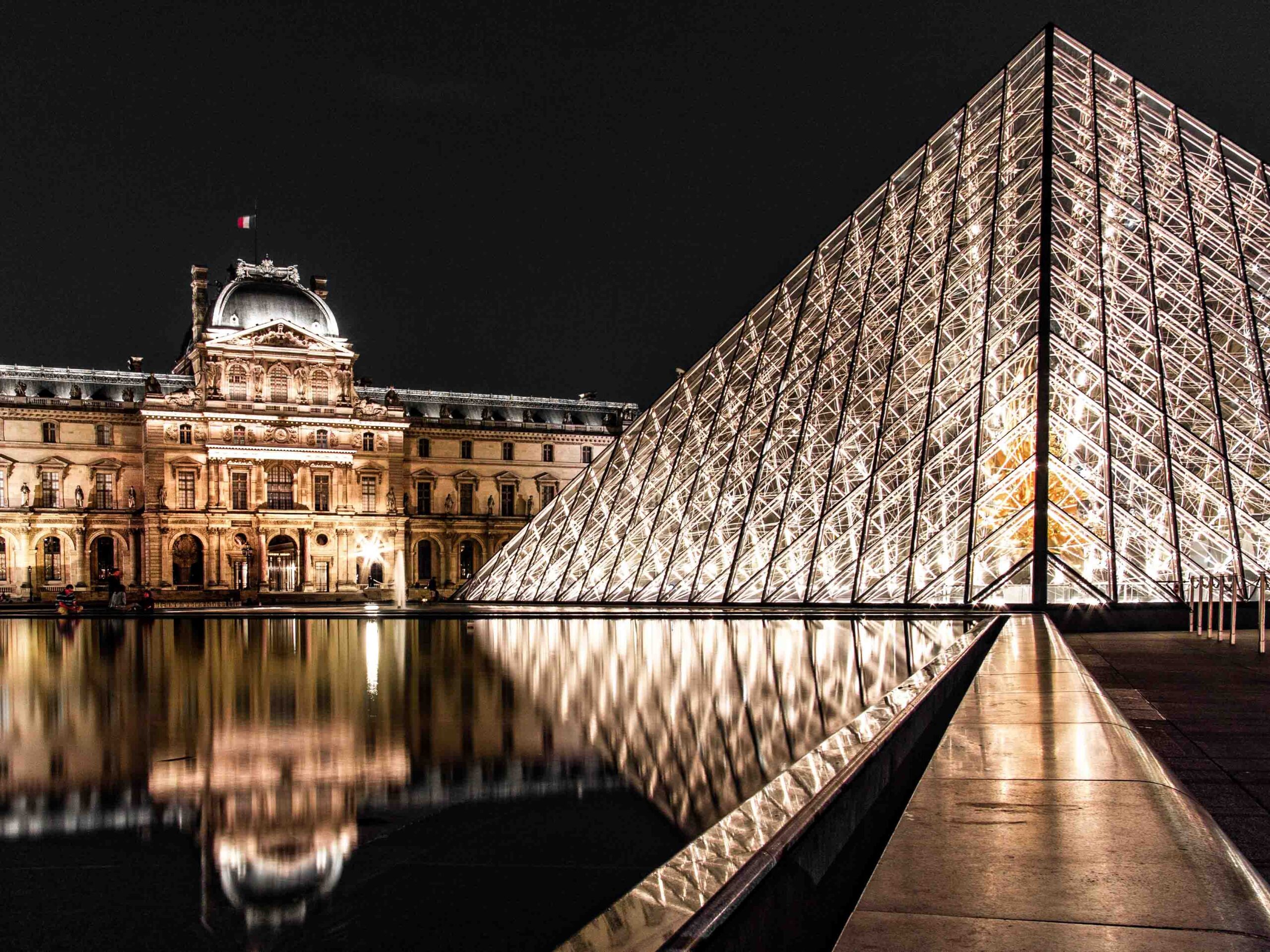The French elections kept the country and observers from all over the world in suspense but ended with an expected and almost banal result. However, in the background of this unsurprising outcome, a profound transformation of France’s political landscape became apparent.
According to the polls, which are constantly driving the campaign debates, the final duo of the election should once again show the confrontation with the extreme right: Emmanuel Macron against Marine Le Pen – in other words: the incumbent’s progressive catch-all party, which is located in the middle of the political spectrum, against the conservative national-populist party, which is traditionally attributed to the extreme right. In this situation, it was almost certain that a ‹republican front› would form to block the far right in the second round. Therefore, many voters knew that the final result was already clear after the first round of voting: Macron would win against Le Pen.
Surprises
However, one phenomenon came as a surprise: Jean-Luc Mélenchon, the candidate of the radical left, achieved a historically high result, which suggested that he could have stolen the show from the extreme right. His movement could even be called the ‹revolutionary left› since its main objective is to convene a constituent assembly to rewrite the constitution and establish a sixth republic. With 21.95 percent of the votes cast, this third candidate was only 1.2 percent behind Marine Le Pen. If he had overtaken her, the tension for the second round would have been high, since the reflex of the blockade by the Republican front, which is rebelling against the extreme right, would probably not have taken place. Furthermore, this candidate of the left would have been a much stronger opponent, because he brought with him a long-prepared, well-thought-out project of upheaval, which was very ambitious on ecological, social, democratic, and also geopolitical issues – with the withdrawal from NATO. The candidate is surrounded by a young and dynamic team and his commitment to environmental and social issues has largely convinced the youth. From a general point of view, he can be accused of being too state-centered, but he was the only one who was able to present visions of the future with a certain poetry. «The great work of the 21st century is to reconcile the cycles of nature and the cycles of human activity,» Mélenchon said in a speech he gave in Toulouse to a large audience of enthusiastic young people.
Only these three candidates, Macron, Le Pen, and Mélenchon, each received more than 20 percent of the votes cast. The other candidates achieved extremely disappointing, even tragic results. None of the traditional parties exceeded the five-percent threshold. Even major historical parties such as the Socialist Party (classical left) or the Republicans (classical right) achieved only ridiculous results. While the classical left had already suffered a historic defeat in the last election of 2017, this time it was also the classical right that was completely dismembered. Even the Green Party, which was still full of hope with Yannick Jadot at the beginning of the election campaign, did not overcome this fateful threshold. In France, the five-percent threshold is important, as the state only reimburses the campaign costs if the candidate exceeds 5 percent. In addition to the psychological burden caused by these desolate results, it is also a financial catastrophe that these political formations have to deal with.
Demographically, Macron’s electorate is predominantly in the age group of 60 years and older, but also in the world of business and high-tech. In contrast, Mélenchon is represented in the youth, among the students, and in the urban working class. Le Pen finds her electorate in the middle age group, among the less well-off, and clearly in the rural population.
An Election of Opponents
This political constellation, in which the three top candidates are above 20 percent and almost all other parties below 5 percent, suggests that the election was largely dominated by the strategy of the ‹tactical voice›. This strategy means that voters do not vote for the candidate they really prefer, but for the candidate who has the best chance of overthrowing their opponent. The paradox of this strategy of the ‹tactical voice› is that it relies largely on the forecast of the polls to elect the best-placed person, which reinforces the predictive potential of the polls. This raises fundamental questions about the relevance of a democracy that is highly influenced by polls and mass media.
If we include the numbers of abstentions, which have no influence on the result but give a more relevant picture of the electorate, the share of the vote of the first-placed candidate Emmanuel Macron in the first round is 20.07 percent, while the abstentions are 26.31 percent. This clearly puts abstention in the first place! In the second round, abstention reached 28.01 percent, the highest in 50 years in the second round of a presidential election. In addition, the three candidates who achieved the best results behind the incumbent president, from the extreme right (Le Pen and Zemmour) and the radical left (Mélenchon), united all angry voters who vehemently oppose the incumbent president. If you add up their results, you get 52.17 percent of the voters (37.62 percent of the vote, if you include abstention). More than half of the votes cast thus represent a fierce and head-on opposition to Emmanuel Macron. Although he places himself in the middle of the political spectrum, surrounded by a radical left and an extreme right, he is also perceived by many as extreme in his kind. Should we perhaps create the concept of the ‹extreme center›?
Poorly Elected President?
With another victory against the extreme right in the second round with 58.54 percent of the votes cast, the incumbent president was able to put on the costume of the savior. It made many, including his opponents from the left, breathe a sigh of relief that the extreme right was defeated. However, we must not forget that all these discontents that brought Marine Le Pen into the second round with historic results are also due to his policies. They are the result of his authoritarian, paternalistic, and often contemptuous way of governing, which has caused a lot of anger and frustration in the population. From his handling of the yellow vest protesters to the pandemic and other issues, he left the impression of an autocrat who has no sense of the little people and the actual needs of the population. He himself had already expressed that France needed a king and was perceived by many as an aloof monarch.
To better understand the situation, the 58.54 percent of the vote, with which he exceeded the 50 percent required for the election to the presidency, must be considered moderate. If we also count the abstentions, the empty, and the invalid votes, we come to the following picture for the second ballot: Emmanuel Macron: 38.52 percent; Abstentions, empty, and invalid votes: 34.2 percent; Marine Le Pen: 28.01 percent. Only Georges Pompidou had achieved a worse result in 1969 with 37.51 percent of the vote. With Emmanuel Macron’s result greatly inflated by the willingness of voters to block the far right in the second round, it is clear that the French president is far from being supported by a majority of voters. Mélenchon, therefore, described him as the «worst elected president of the Fifth Republic».
Will he take this electoral reality into account in order to reduce tensions and restore the confidence of the population, or will he use the power mechanisms offered to him by the French Republic to continue to govern vertically against the tide of the population? Many see him as the president of the rich and the technocratic elite. What is certain is that the parliamentary elections that will take place in June will play an important role. Parliament has been dominated for five years by the president’s party and the traditional right, but the latter has just collapsed. If the new composition of the parliament reflects the outcome of the presidential elections, the president will be forced to take his opponents into account. Now many hope that the parliamentary elections will bring about the change desired by more than 50 percent of the votes cast. The parties have already started their election campaigns.
Where to?
But isn’t this race for the elections, this competition between the oppositions, a little pointless? More than half of the electorate lives in frustration or resignation, and the elections become an expression of rejection rather than a positive will. Democracy should allow everyone to feel involved and recognized, it should cultivate the art of conversation and respect for different points of view, thus promoting harmonization of social life. However, we are clearly seeing a radicalization of positions and growing divisions in society. The question arises as to whether the form of democracy as it has developed in France has not come to an end. Wouldn’t it be time to rethink the concept of ‹democracy›, reshape democratic life and participation, and use all the innovation, creativity and social technology to shape political-democratic processes worthy of the 21st century?
Photo Michael Fousert, Unsplash – Translation: Monika Werner













